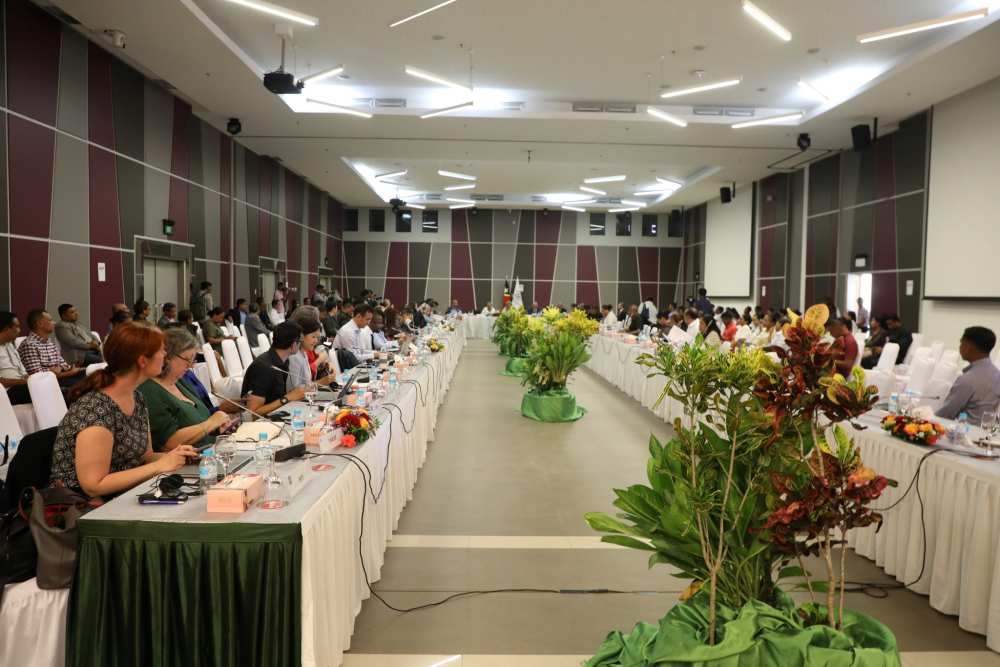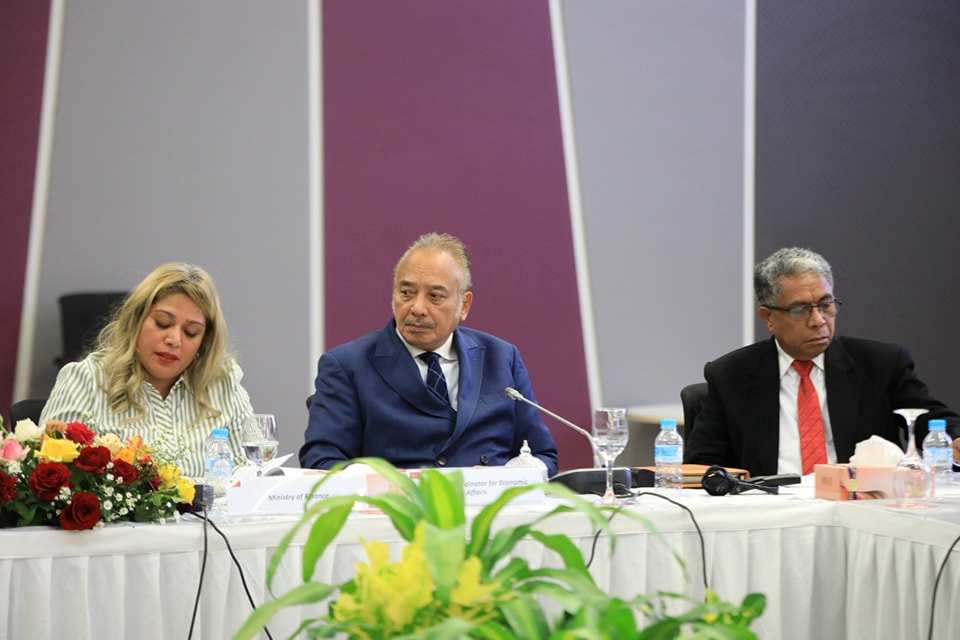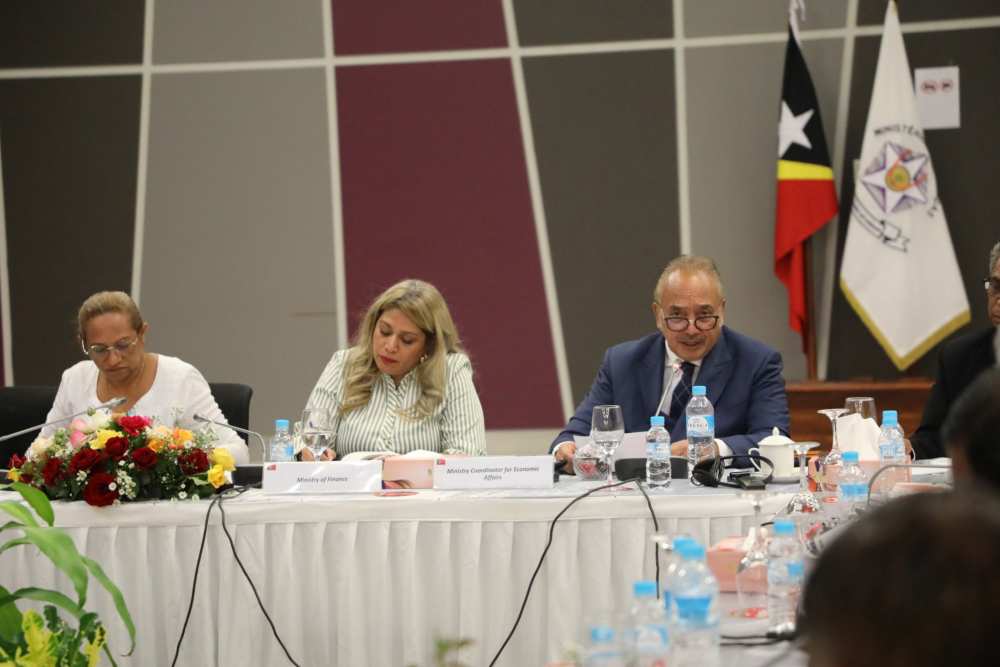(AseanAll) — The Government of Timor-Leste, through the Ministry of Finance, held the Quarterly Development Partners Meeting (QDPM) on April 28th, 2025, at the Kay Rala Xanana Gusmão Auditorium, with the aim of strengthening sectoral coordination and paving the way for the creation of an objective, long-term Common Results Framework, in conjunction with the Development Partners.

Opening the event, the Vice-Minister of Finance of Timor-Leste, Felicia Claudinanda Cruz Carvalho, said that the meeting is “a strategic opportunity for reflection, alignment and renewed collaboration”, stressing that the meeting focuses on three key priorities: the presentation of Government Resolution no. 43/2024, which formalizes the creation of the Interministerial Coordination Committees; the launch of a preliminary discussion on the concept of a Common Results Framework; and preparation for the next Timor-Leste Meeting with Partners. 43/2024, which formalizes the creation of the Interministerial Coordination Committees; the launch of the preliminary discussion on the concept of a Common Results Framework; and the preparation for the next Timor-Leste Development Partners Meeting (TLDPM), scheduled for June 9th and 10th, 2025.

Speaking at the meeting, the Vice Prime Minister, Coordinating Minister for Economic Affairs and Minister for Tourism and Environment, Francisco Kalbuadi Lay, presented the Government of Timor-Leste's economic development vision to the development partners. In his speech, the Vice Prime Minister stressed that “Timor-Leste's goal for economic reform and development is clear: to build a diversified and dynamic economy that not only creates jobs, but also supports local businesses and guarantees a sustainable future for everyone in Timor-Leste”. He also stressed that “through focused and targeted economic reforms, we have strengthened Timor-Leste's capacity for growth, reduced dependence on natural resources and created new paths to prosperity”.

The Vice Prime Minister explained that the government is investing in the modernization of agriculture, the development of sustainable tourism, the promotion of industry and renewable energies, and the expansion of the digital economy, as fundamental pillars for diversifying the economy. He also highlighted the importance of empowering young people through the National Employment and Skills Development Program, as well as the role of cooperatives in supporting inclusive economic growth. He underlined the government's commitment to creating an environment conducive to the development of the private sector and the modernization of transport and telecommunications infrastructure and digital services, which are key to strengthening economic competitiveness and regional integration, particularly in the context of full membership of ASEAN.
The Vice Minister pointed out that the Interministerial Coordination Committees, organized around the pillars of Social Affairs, Economic Development, Infrastructure and Institutional Development, have the mandate to identify and overcome sectoral blockages, define coordinated actions between ministries and partners, and support strategic planning and the implementation of national programmes. “This structure reflects the government's clear commitment to ownership, coherence and the achievement of long-term results,” he stressed.
The meeting also made it possible to present the initial concept of the Common Results Framework, the direction of which is to establish shared standards for monitoring and evaluation, aligning development initiatives with national priorities in order to reduce duplication, strengthen transparency and promote local ownership. “Although still in the development phase, this framework represents a significant step towards the creation of a comprehensive monitoring and evaluation system, based on a partnership of mutual respect between the Government and Development Partners,” said the Vice Minister.
The meeting's agenda also included question and answer sessions on Government Resolution 43/2024 and the priorities of the 9th Constitutional Government's Program, the coordination of programs and information from the partners, as well as the presentation of the Sector Strategic Plans for the Economic, Social Infrastructure and Institutional Development pillars.
It should be remembered that Government Resolution 43/2024, approved on August 14, 2024, created four Interministerial Coordination Committees, each led by a minister responsible for the respective areas, with the mission of ensuring the effectiveness of foreign aid, strengthening interministerial coordination and guaranteeing the aligned implementation of national development priorities.
The process of creating the Common Results Framework will continue in the coming weeks, with the aim of presenting it for consideration and validation at the Timor-Leste Development Partners Meeting (TLDPM) in June this year.
The meeting was attended by members of the government, the diplomatic corps and representatives of development partners and the public administration.